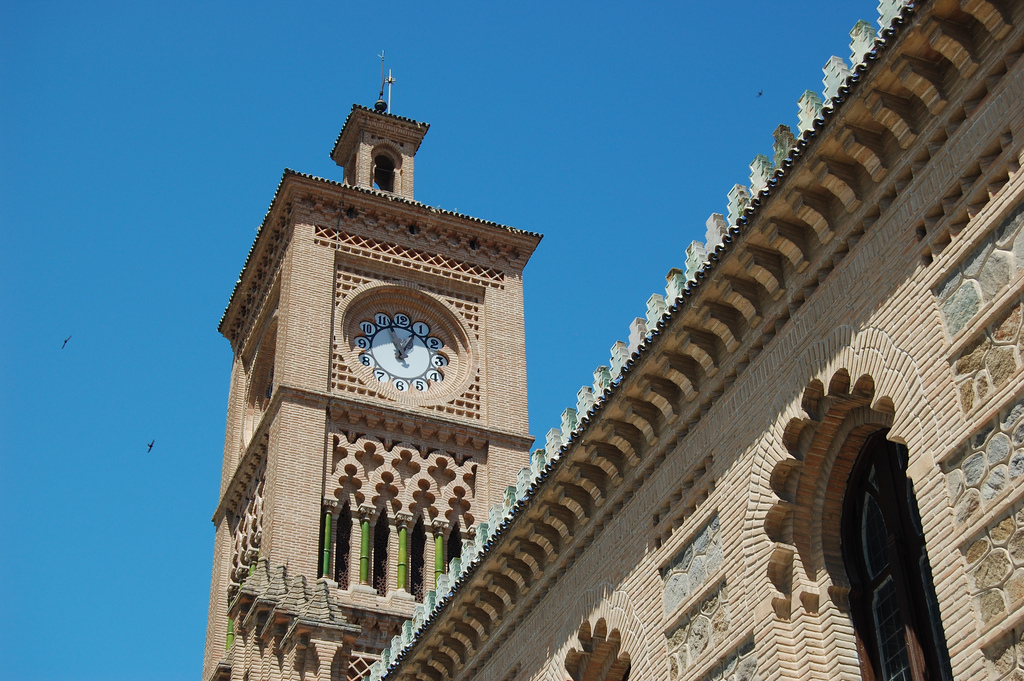Do you plan to visit the Toledo region of Spain this year as part of a fun European vacation or tour? If so, chances are good that at least part of your travel will end or begin at the Estación de Ferrocarril, the main railway station in Toledo. In the article below we have compiled some useful facts regarding the station, including some information about its history, the purpose it serves and the very distinctive architectural style that sets it apart from other Spanish transportation centers.
Estación de Ferrocarril: Overview
The Estación de Ferrocarril, as Toledo residents know it today, opened in the spring of 1919 and belongs to a company known simply as MZA, an acronym for “Madrid-Zaragoza-Alicante.” It replaced an earlier building, once owned and designed by the Toledo Railway Company, which opened in 1858. That earlier building was fully functional, but was drastically different in appearance from the current structure, which possesses a distinctive Neo-Mudejar style.
Construction of the new Estación de Ferrocarril began in 1917, under the direction of the MZA-selected architect Narciso Claveria, a great promoter of the Renaissance or New Mudejar style of architecture for Spanish structures. The project spanned nearly three years, with a cost of just over a million pesetas. To complete the station, Claveria chose a variety of construction materials—brick, stone, cement and iron—and combined them to achieve the sturdy, yet decorative building that still stands today.
Features
One of the highlights of the Estación de Ferrocarril is the passenger building, located on one side of the tracks and featuring a canopy supported by iron columns. On one level, the passenger building consists of a roomy central pavilion, flanked on each side by two smaller houses, varying in levels, which continue the style and theme of the façade.
At the far left end of the station stands a beautiful clock tower, although it is very curious as to why the architect included it as part of the design. Towers such as these are much more common in Mudejar churches and other religious buildings, and its inclusion here demonstrates the lengths the designers were willing to go to in an effort to bring a “taste of the old” to the new train station.
The central pavilion of the Estación de Ferrocarril has five entrances that lead to the main lobby; entrances that are marked by horseshoe-shaped doorways. The lobby is home to the box office, highlighted stunningly with wrought iron, where passengers buy their tickets. The lower half of the lobby’s walls are decorated with colorful mosaic tiles, as are the coffered ceilings, all designed by the Toledo ceramist Angel Pedroza Toledo. Other ornamental features of the lobby include the lamps, signs and railings, collectively the work of the master smith Julio Pascual.
Purpose and Importance
Given the Estación de Ferrocarril’s proximity to Madrid, a city with several modern stations, and the improvement of road conditions, the customer traffic passing through the Estación de Ferrocarril waned a bit in the late 20th century. However, because Toledo, a city glowing in history and tradition, remains a top tourist destination in the country, the station still receives its fair share of traffic. Helping to create some of that traffic is the “AVE” train, a high-speed commuter rail. Opened in November of 2005, the AVE train allows tourists and commuters to travel between Toledo and Madrid in approximately 30 minutes, without the inconvenience of many stops along the way.
The importance of the AVE line to the city of Toledo cannot be understated, as evidenced by the pomp and celebration that surrounded its inauguration—an inauguration attended by the President of Castile-La Mancha, Jose Maria Barreda; Department Minister, Magdalena Alvarez; and Prime Minister, Jose Luis Rodriguez, among others dignitaries.



